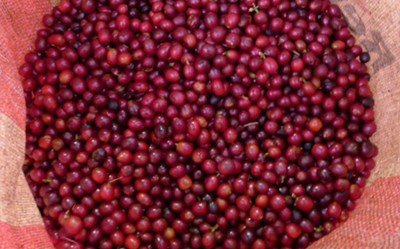Introduction to boutique coffee beans-- Rose Summer Coffee characteristics Panamanian boutique coffee Rose Summer
Let's first talk about Rose Summer, that is, Gesha, which is also called "geisha" in Japanese translation. First of all, Maoye felt that Rose Summer was not the name of coffee, but a variety of coffee, which was discovered in the Rose Summer Forest of Isopia in 1931 and sent to the Coffee Institute in Kenya. It was introduced to Uganda in 1936 and then to Tanzania, and it was not until 1953 that Rosa was introduced by Costa Ricans, which was the first time Rosa landed on the American continent. This is the beginning of her legendary career.

The Panamanian Rose Summer, as we all know, was in the 1970s, when Mr. Francico Selassie of Dong 87 Farm received seeds from CATIE in Costa Rica and began to plant them. The reason why Rosa is valuable is that the output is very low and it is necessary to participate in the bidding, so it is very difficult to get Rosa beans. Of course, extremely low production is only one of the reasons for its value, and the most important reason why Rosa is so valuable is that it overrides the flavor of all the coffee in the world.
At present, the main rosy summers are the rosy summers of Panama, Colombia, Guatemala and Costa Rica, among which Panama and Colombia have the best flavor. If you are particularly impressed by the rosy summer, you will remember that Cat got the rosy summer of the blue mountains of the Colombian Hope Manor last year. And this year, Maoye got this NINETY PLUS Panamanian Rose Summer is even more beloved by Maoye.
First of all, let's briefly talk about the original treatment of raw coffee beans created by NINETY PLUS, which currently uses three mainstream treatment methods: water washing (Washed Process), sun treatment (Natural Process), and honey treatment (Honey Process), while NINETY PLUS believes that coffee is actually a kind of fruit, so he named the three exclusive improved treatment methods W2 (water washing), N2 (sun exposure) and H2 (honey treatment). As for these three treatment methods, I believe that many friends who love coffee are familiar with it. If they don't know much about it, they will go to "@ Coffee knowledge Collection" to search this Weibo, or start Baidu. Don't always be "borrowlism". Cat Master is not SIRI. You can answer whatever you ask.
At present, the raw beans of NINETY PLUS that Maoye has come into contact with are roughly divided into L5\ L7\ L12\ L21\ L39\ L95. If there is anything that has not been touched, it may be that Maoye is ill-informed. This paragraph explains the grading standards of these grades. L5: generally, mixed harvest is adopted, that is, when the level of micro-batch raw beans in a single producing area is not enough to meet the flavor standard of separate harvest and treatment, the membership is mixed to enhance its flavor, so that the cup test score can be maintained at a high level. L7: beans above this grade are harvested by single harvest. Beans from a single producing area with more detailed flavor are selected by hand, and then treated with the exclusive method created by NINETY PLUS, so that the cup test score can still be more than 90 +. L12: when harvested in a single producing area, raw beans must be natural jade, and then after the special treatment of NINETY PLUS, the flavor can be further expressed. L21: for harvesting in a single producing area, beans of this grade NINETY PLUS are commonly found in Rose Summer at present. The requirements for the varieties of raw coffee beans are more stringent, and they are already close to the level of zero defect rate, so the raw coffee beans produced will not be bad. L39: it is more common for raw beans of this grade to use N2 (sun exposure) and H2 (honey treatment). Under the highly required standard of harvesting raw bean varieties in a single producing area, the use of stronger characteristic treatment makes it more viable. L95:NINETY PLUS's highest level of raw beans harvested in a single production area is also more expensive, she represents all the qualities of NINETY PLUS, with extraordinary flavor, Maoye feels that there are no more words to describe this grade of raw beans.
I believe that with the above information, you must be eager to know the flavor that Maoye is going to introduce to you. In fact, Maoye will not describe in too much detail in this paragraph of flavor description, because after each flavor is captured in detail, the more subtle feeling is self-evident. The rosy summer of NINETY PLUS must be able to kill other varieties of coffee beans in the world. Don't compare those poor performance-to-price beans such as cat shit, like shit and Blue Mountain. Cat Ye chooses raw coffee beans with more flavor than fame or the sky-high price that tuhao can show off. Of course, if you want to give Cat Ye a few kilograms of cat shit, such as shit, Blue Mountain or even Rose Summer beans, Cat Yeh will still reply to you in private: tuhao, let's be friends!
All right, needless to say, let's get to the point, that is, about the flavor of these beans. Part of the rose summer that Maoye is willing to sell this time is the rose summer of W2-L21, H2-L39 and N2-L39, which has a high performance-to-price ratio. Maoye feels that he can easily enjoy the rosy summer of Esmeralda Farm, the Emerald Manor of Panama, which everyone is familiar with.
W2-L21 Lycello this rose summer, when the raw bean bag is opened, the raw bean has a very beautiful sapphire green, as warm as jade, as if it is not a bag of coffee beans, but a bag of jade, a fresh aroma of grass and tea flutters from the raw bean bag, thus it can be seen that the fragrance of this thing requires a very deep association. Many people always feel that they can't find the taste that Maoye described when he introduced other beans, but it expresses a different flavor, perhaps because everyone's association ability is different. In order to highlight the characteristics and aroma of this bean, Maoye chose to put the bean at the beginning of an explosion, and the dehydration rate was about 12%. The tonality of this washed Rosa fruit is not as strong as imagined, but it tends to be perfect in terms of acidity and floral fragrance, very bright but soft acidity, and dancing flower fragrance. Maoye suggested that the bean could use a powder-water ratio between 1:15 and 1:18. This highlights her very full aromas of jasmine and citric acid, and there will be more honey, cream, nuts and tea in the middle and back.
H2-L39 Juliette is the bean that Maoye has been looking forward to most. Generally speaking, rose summer is more common in water washing and sun drying, and the rose summer treated with honey is really rare, but honey treatment always makes the original flavor of some raw beans more round in the impression of Maoye, but it is really amazing when exposed to this bean. First of all, after honey treatment, her flavor is not ground round, but more intense. The suggested gouache is lighter or lighter than at 1:18. The aroma of sweet citrus and melon and fruit is very full, with the flavor of Assam black tea. It has a unique sweetness and touch brought by honey treatment, refreshing and layered. Drink it down layer by layer, making Maoye think of a dignified and noble lady. Peeling off her clothes layer by layer, revealing the wonderful carcass is generally fascinating.
N2-L39 Perci Red, this bean, is the favorite taste of the three beans. The raw bean has the aroma of Sydney! What a surprise! Sun-treated beans are always used to surprise Maoye. Her dry and wet aromas are filled with all kinds of mature and sweet aromas of flowers and fruits, especially tropical fruits, apples, pineapples, mangoes and bergamot. It has a very wild sun aroma, as if the aroma explodes in the mouth, making people speak incoherently to it! The gouache ratio recommended for this bean is 1:18 or less.
If you don't drink these three beans first-hand, you won't understand why Maoye admires NINETY PLUS's raw beans so much, but it takes a great risk to drink these three beans, because you will feel that you may not be able to love any more.
Master Cat felt that if he could never drink such beans again, he would have the feeling of losing his lover.
Important Notice :
前街咖啡 FrontStreet Coffee has moved to new addredd:
FrontStreet Coffee Address: 315,Donghua East Road,GuangZhou
Tel:020 38364473
- Prev

Knowledge of Fine Coffee beans-- the unique taste of Kenyan coffee from Kenya
Coffee entered Kenya in the 19th century, when Ethiopian coffee drinks were imported into Kenya through southern Yemen. But it was not until the early 20th century that the Bourbon Coffee Tree was created by the St. Austen Mission (St). Austin Mission) is introduced. Kenyan coffee is mostly grown at an altitude of 1500 to 2100 meters and is harvested twice a year. To ensure that only ripe berries are picked, people must
- Next

Introduction of boutique coffee beans-- characteristics of Yega Xuefei boutique coffee from Ethiopia
Yirgacheffe,rgachefe (also known as yirgachefe) is a town in south-central Ethiopia. It is an important coffee-growing area, the administrative center of yirgachefe Yega Sherphi County. Ethiopia
Related
- Detailed explanation of Jadeite planting Land in Panamanian Jadeite Manor introduction to the grading system of Jadeite competitive bidding, Red bid, Green bid and Rose Summer
- Story of Coffee planting in Brenka region of Costa Rica Stonehenge Manor anaerobic heavy honey treatment of flavor mouth
- What's on the barrel of Blue Mountain Coffee beans?
- Can American coffee also pull flowers? How to use hot American style to pull out a good-looking pattern?
- Can you make a cold extract with coffee beans? What is the right proportion for cold-extracted coffee formula?
- Indonesian PWN Gold Mandrine Coffee Origin Features Flavor How to Chong? Mandolin coffee is American.
- A brief introduction to the flavor characteristics of Brazilian yellow bourbon coffee beans
- What is the effect of different water quality on the flavor of cold-extracted coffee? What kind of water is best for brewing coffee?
- Why do you think of Rose Summer whenever you mention Panamanian coffee?
- Introduction to the characteristics of authentic blue mountain coffee bean producing areas? What is the CIB Coffee Authority in Jamaica?

